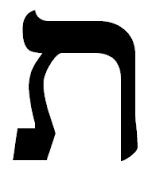The book of Isaiah was
written by the prophet Isaiah whose name means “God is my salvation”. This book
is often considered a miniature replica of the Bible because of its format. It
is comprised of 66 chapters (as the Bible has 66 books) which are divided into
two distinct halves. Amazingly the first half is 39 chapters of Israel’s
problems with idolatry – matching perfectly with the Old Testament’s 39 books
requiring judgment on immoral, idolatrous mankind.
If that seems only
coincidental to you, please notice that the New Testament embraces 27 books of
hope and redemption through Christ, and Isaiah’s final 27 chapters paint a
picture of the Messiah coming as king and savior. Amazing!
The major themes in this
book are, first, that Israel is in exile and there is divine judgment upon
their oppressors. Next we have the return from Babylon followed by the
manifestation of the Messiah in humiliation. Then there is the blessing of the
Gentiles, the manifestation of the Messiah in judgment, the reign of David’s
righteous branch in the kingdom age and finally, the new heavens and the new
earth. Isaiah looks toward the captivities and then beyond the captivities.
This book has a very clear
vision of grace. We see the Messiah in His Person and in His sufferings and
then we see the blessing of the Gentiles through Him.
As I’ve said many times
before the 66 books of the Bible line up in 3 rows with the 22 letters of the
Hebrew alphabet. Genesis, Isaiah, and Romans line up with the first Hebrew
letter, Aleph.





